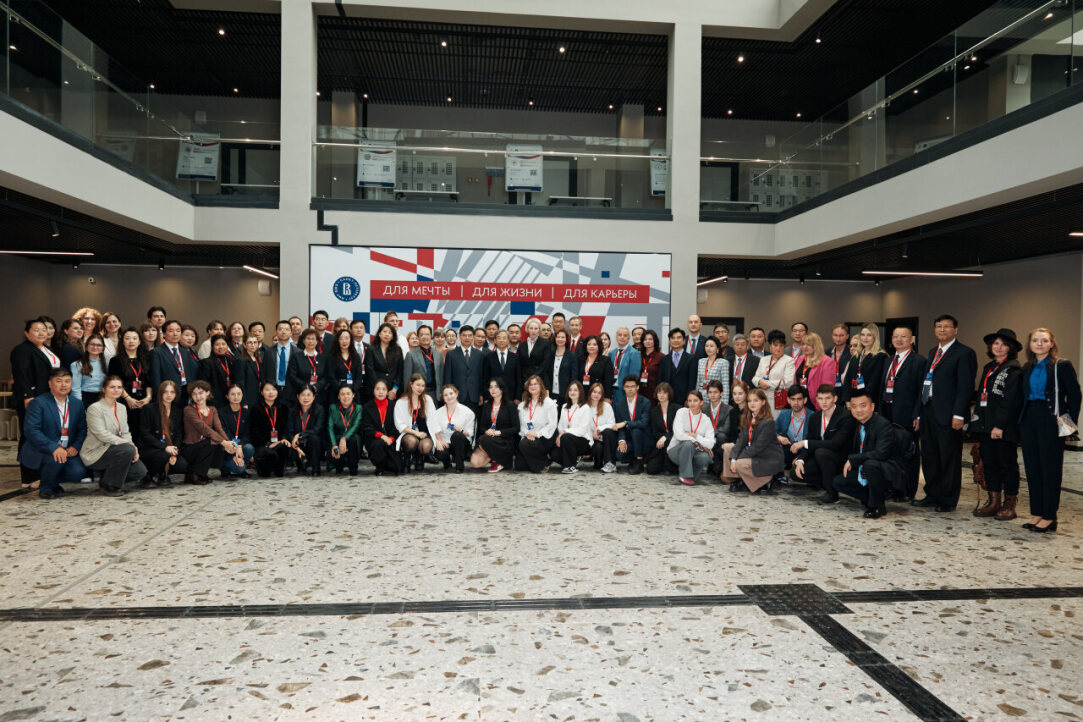Russian–Chinese Forum at HSE University–St Petersburg Provides Platform to Discuss Best Practices of AI Use
On September 23, the HSE University–St Petersburg Rope Shop Building hosted the Second Russian–Chinese Forum 'Culture of Education' and the annual meeting of the Russian–Chinese Association of Applied Research Institutes. More than 100 participants from leading non-government Chinese universities and representatives of 15 Russian universities discussed the integration of artificial intelligence in education and industry.

Opening the event, Anna Tyshetskaya, Director of HSE University–St Petersburg, highlighted that the forum was held against the backdrop of global changes in Russian–Chinese relations. 'We live in a significant time: the recent visit by Russian President Vladimir Putin to the PRC has opened a new page of our strategic partnership. The cancellation of the visa regime creates unprecedented opportunities for academic mobility between our countries. It is symbolic that on the eve of overlapping Years of Education both in Russia and China, we discuss the education of the future. As the famous Chinese saying goes: "A journey of a thousand miles begins with a single step." And today, we have taken it,' she said.
Today there are more than 51,000 Chinese students in Russia and 21,000 Russian students in China. HSE University–St Petersburg has 44 valid partnership agreements with 27 leading Chinese universities, and about 1,500 HSE students are learning the Chinese language. The development of educational partnerships is strongly supported at the diplomatic level. In his speech, Zhang Xiaoqing, Deputy Consul General of the PRC, underscored the importance of the forum as a platform for coordinating efforts in the academic sphere: 'This is an important platform for promoting educational cooperation and humanitarian exchanges between our countries, a bridge of understanding. We suggest using the full potential of the alliance of applied universities, expanding bilateral exchanges, improving models of training personnel, and developing joint research in digital education and green technology.'
On behalf of the St Petersburg government, guests were welcomed by Yuri Snisarenko, Director of the St Petersburg Scientific Foundation. He emphasised the special role of the northern capital in the development of science and education: 'Almost one in ten residents of our city is a student. In St Petersburg, there are more than 60 state and non-government universities and more than 300 research organisations. Artificial intelligence provides a wide range of opportunities in all scientific spheres. Therefore, it is important to hold discussions about artificial intelligence in the context of science and higher education in St Petersburg.'
The guests were also greeted by Wang Lisheng, Vice President of the China Association for Non-Government Education, and Oleg Smeshko, presidium member of the Council of the Association of Non-Government Higher Education Institutions of Russia and Rector of the St Petersburg University of Management Technologies and Economics.
The key reports session at the forum was opened by Alexey Naumov, Director of the AI and Digital Science Institute at HSE University. He shared the achievements of Russian scientists in AI and the challenges arising due to new technologies in education: 'In the age of large language models, we have to teach how to think; AI has to become a second calculator for us, a tool that boosts human capacity.' The expert compared modern education with a 540-degree view: 'We must not just look around but study everything both from inside and outside,' he added.
A vivid example of AI integration into practical activities was presented by Irina Rasmagina, associate professor at the Department of Internal Diseases Propaedeutics, Gastroenterology, and Dietology at North-Western State Medical University named after I. I. Mechnikov. She talked about the development of a clinical decision support system for the diagnosis of inflammatory bowel disease. 'We created a system that analyses clinical and laboratory data and endoscopic images with the help of neural networks. Testing 85 patients, we achieved 97% diagnostic accuracy. That is a very high rate, taking into account that our patients had been consulting doctors for a long time without getting a correct diagnosis,' said Irina Rasmagina. The project demonstrates how artificial intelligence can solve real-life healthcare problems, reducing the time for diagnosis from two years to several minutes and increasing the quality of medical care.
The forum participants also discussed the establishment of joint research laboratories, the development of academic mobility programmes, and the introduction of innovative educational technologies. The event finished with a university exhibition in which the participants presented cases of AI integration in study processes and discussed specific cooperation projects.
The First Russian–Chinese Forum 'Culture of Education' took place in October 2024 in Beijing, featuring 82 educational institutions. The Russian–Chinese Association of Applied Research Institutes was founded at the event, which brought together about 20 universities from both countries to develop joint research and educational projects.

